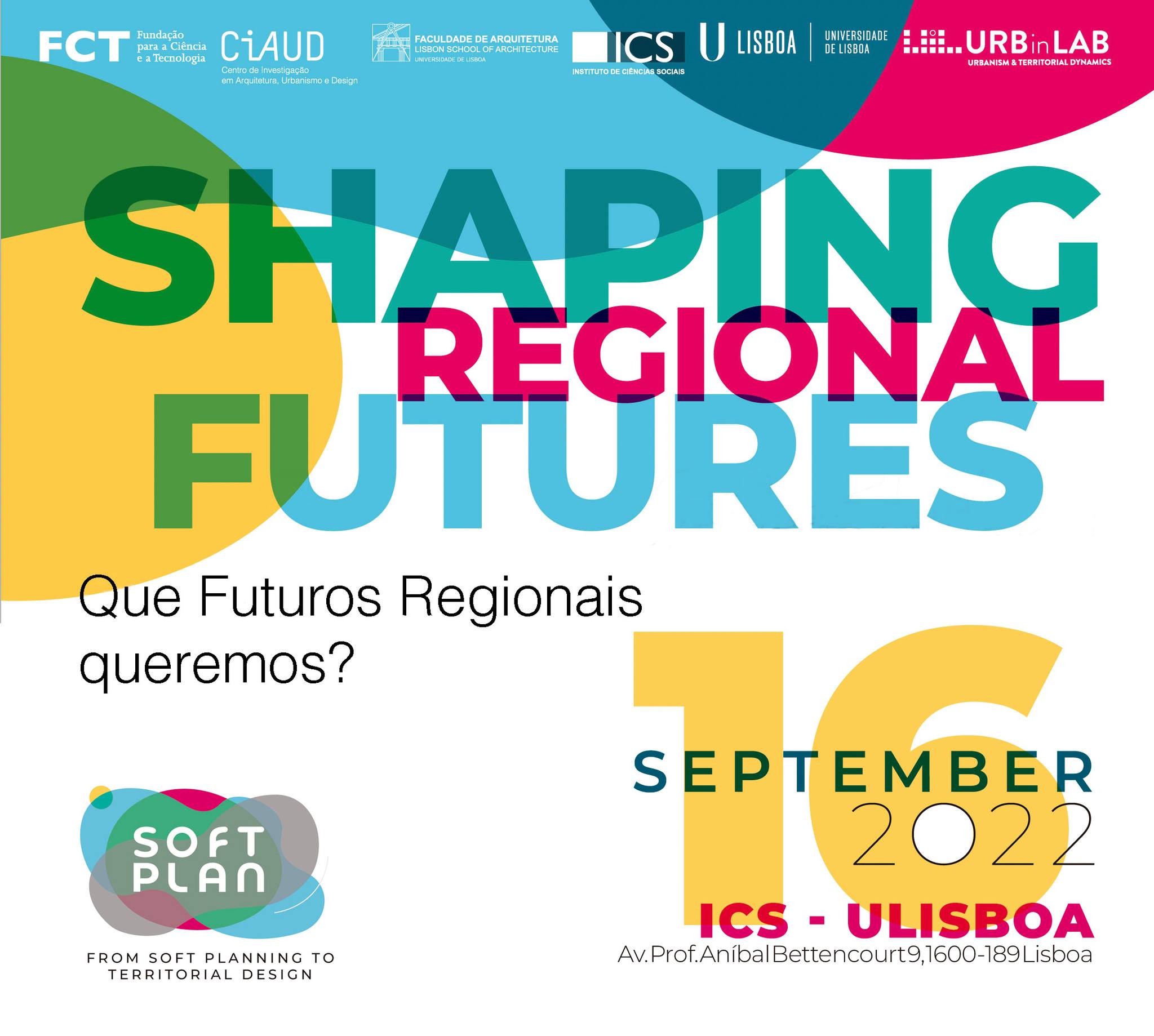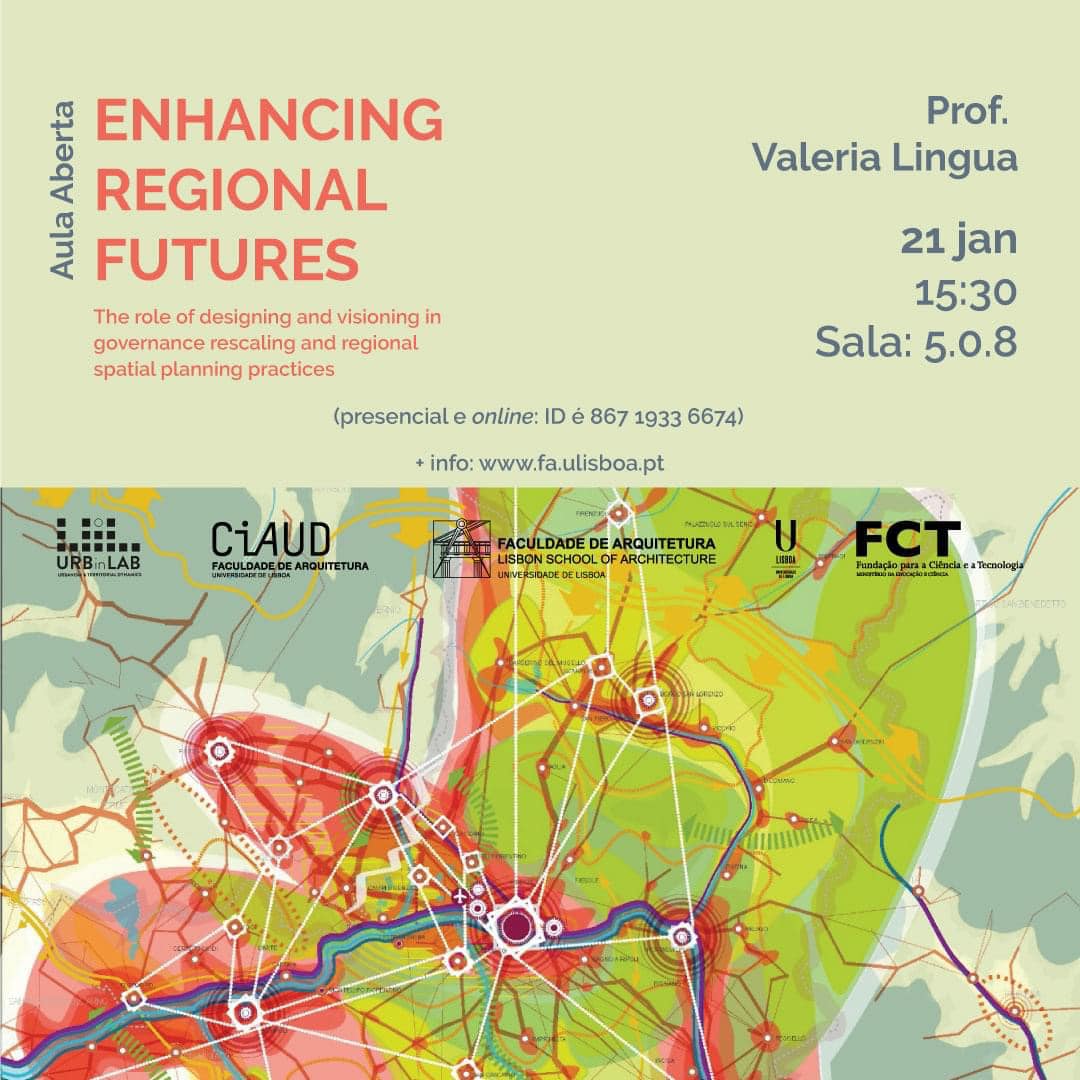Softplan - From Soft Planning to Territorial Design: practices and prospects
In the last decade, soft spaces and soft planning have emerged as new spatial planning and governance concepts.
Unlike traditional statutory planning, soft planning acts in complex institutional settings breaking with established administrative structures, boundaries and planning tools. Soft planning embodies the coordination and integration of different policy sectors at different scales and administrative geographies calling for flexible problem-oriented tools and a strategic foresight approach. In soft planning, the effective engagement of territorial actors depends on: (i) the redistribution of tasks and responsibilities between different tiers of government and (ii) the introduction of flexible institutional arrangements and boundaries.
Despite a strong common influence, i.e. EU Cohesion Policy, soft planning practices differ substantially throughout Europe.
In Portugal, while statutory planning instruments have failed to fruitfully accommodate territorial dynamics and development demands, soft planning practices have so far been scarce and inconclusive.
Under the banner of EU Structural Funds a set of new soft planning policy initiatives endorsing integrated territorial approaches (Table 1) was set up in 2014 under the scope of Portugal 2020.
These instruments profit from an associated financial envelope and a non-statutory framework that potentially enhances its effectiveness on promoting spatial transformation. However, they also risk introducing disruption and ambiguity into the planning system.
SOFTPLAN hypothesis is that territorial design can be a mediator between hard and soft planning tactics, allowing for the construction of shared planning agendas, connecting operational programming with spatial planning, promoting the integration of sector-wide policies, and bridging planning objectives with concrete place-based solutions (Table 2).
Focusing on the Region of Lisbon and Tagus Valley, SOFTPLAN objectives are twofold:
Research wise, in an outward perspective we aim to contribute to the international debate on soft planning and territorial design with the analysis of the Portuguese case study. In an inward perspective we aim to add to existing research on the impacts of the Europeanization process in Portugal through the implementation of EU Policies.
Policy wise, we aim to inform the redesign of soft policy community initiatives ahead of the EU programming cycle post-2020 and to contribute to foster culture change in the Portuguese planning community, namely by bringing together academics, policy makers and practitioners.
SOFTPLAN takes stock of the research team’s collective track record, the previous public offices held by three of its members in the field of planning (secretary of state, deputy-director general and head of cabinet of secretary of state), and the advantage of the integration of its members in an international network on territorial design, with representatives from UK, Spain, Netherlands, Italy and Denmark.
Find out more at the project website here






Date: 2018-2021
Coordination: Cristina Cavaco (FAUL/CIAUD)
Team:
FAUL/CIAUD: Cristina Cavaco; João Pedro Costa; Cristina Delgado Henriques; João Rafael Santos
ICS: João Ferrão; João Mourato; Andrew Inch
Consultants: Graham Haughton (University of Manchester); Daniel Galland (Aalborg University); Oriol Nel.lo (Universitat Autònoma de Barcelona); Philip Allmendinger (University of Cambridge); Valeria Lingua (Università degli studi Firenze); Verena Balz (Delft University of Tecnology)
Funding: Fundação para a Ciência e a Tecnologia (PTDC/GES-URB/29170/2017)
Partners: Instituto de Ciência Sociais (ICS); Direção Geral do Território (DGT); Câmara Municipal de Almeirim; Câmara Municipal de Oeiras; Câmara Municipal de Setúbal; Câmara Municipal de Torres Vedras